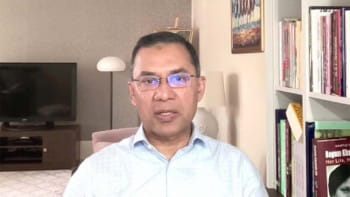Cotton growers unhappy as prices fail to meet expectations

Although the cultivation of cotton is on rising as growers look to meet a portion of local demand and reduce dependence on imports, growers are unsatisfied with the low prices of the white fibre on the domestic market.
The prices of cotton cultivation inputs like seeds, fertilisers, diesel, pesticides and labourers have increased this year, pushing up the cost of production, but farmers are not getting prices as expected.
Farmers in Lalmonirhat, a district in the northwest, said one maund (37 kilogrammes) of cotton was sold for Tk 3,800 last year. The price has risen just 2.6 percent year-on-year to Tk 3,900 per maund this year.
Farmers said they could produce 14-16 maunds of cotton on each bigha of land at a cost of Tk 16,000 to Tk 20,000 this year compared to Tk 11,000 to Tk 14,000 last year.
They said they were not making as much profit as they expected although some said that their yields had increased.
Manjur Ahmed, a cotton grower from the Chawratari village in Lalmonirhat Sadar Upazila, said he had been cultivating hybrid varieties of cotton since last year after local varieties had produced low yields two years ago.
"Even with the expected cotton yield, the price is disappointing. We couldn't even sell each maund for Tk 5,000. As it takes eight months to produce, we will benefit if the government steps in to increase the price," said Ahmed.
Bangladesh needs more than 90 lakh bales (one bale= 217.72 kgs of cotton) of cotton annually to meet growing demand from textile millers, spinners, and weavers, but local farmers can supply less than 2 percent of the total annual requirement.
Almost all the demand for cotton is met through imports, which costs the country more than $3 billion every year.
In the current year, farmers have cultivated cotton on 46,000 hectares, up nearly 2 percent year-on-year, according to data from the Cotton Development Board (CDB).
The government is aiming to produce 2.28 lakh bales this season after around 2.10 lakh bales were produced the previous season.
CDB officials said four varieties of cotton are grown in the country depending on the region.
Rezaul Karim, cotton unit officer of CDB, said interest in cotton cultivation is on the up and cultivation of various vegetables as companion crops has also started.
"Now 90 percent of the farmers are producing hybrid varieties (of cotton) and the rest local varieties as we are providing cotton farming methods to farmers at the field level."
Abdul Mannan, a cotton buyer from Bogura, termed cotton an imported industrial product. As such, it is purchased based on the international price and its fluctuations.
He also said the CDB monitors the international market prices of cotton.
Executive Director of CDB Fakhre Alam Ibne Tabib said the market price of cotton is determined by spinning mill owners, who only monitor international market rates. The farmers' demand regarding market price will be discussed, he added.
He said the CDB had taken various steps to expand cotton cultivation, such as identifying land so that food grain production does not hamper cotton production.
He said an allocation of Tk 10 crore has been received to encourage farmers in cotton cultivation, and it will be distributed to 12,375 trained farmers this year.
"CDB plans to produce 15.80 lakh bales of cotton from two lakh hectares of land by the year 2040 as cotton is the main raw materials of the textile industry, which is the driving force of our country."
(Refayet Ullah Mirdha contributed to the story)


 For all latest news, follow The Daily Star's Google News channel.
For all latest news, follow The Daily Star's Google News channel. 



Comments